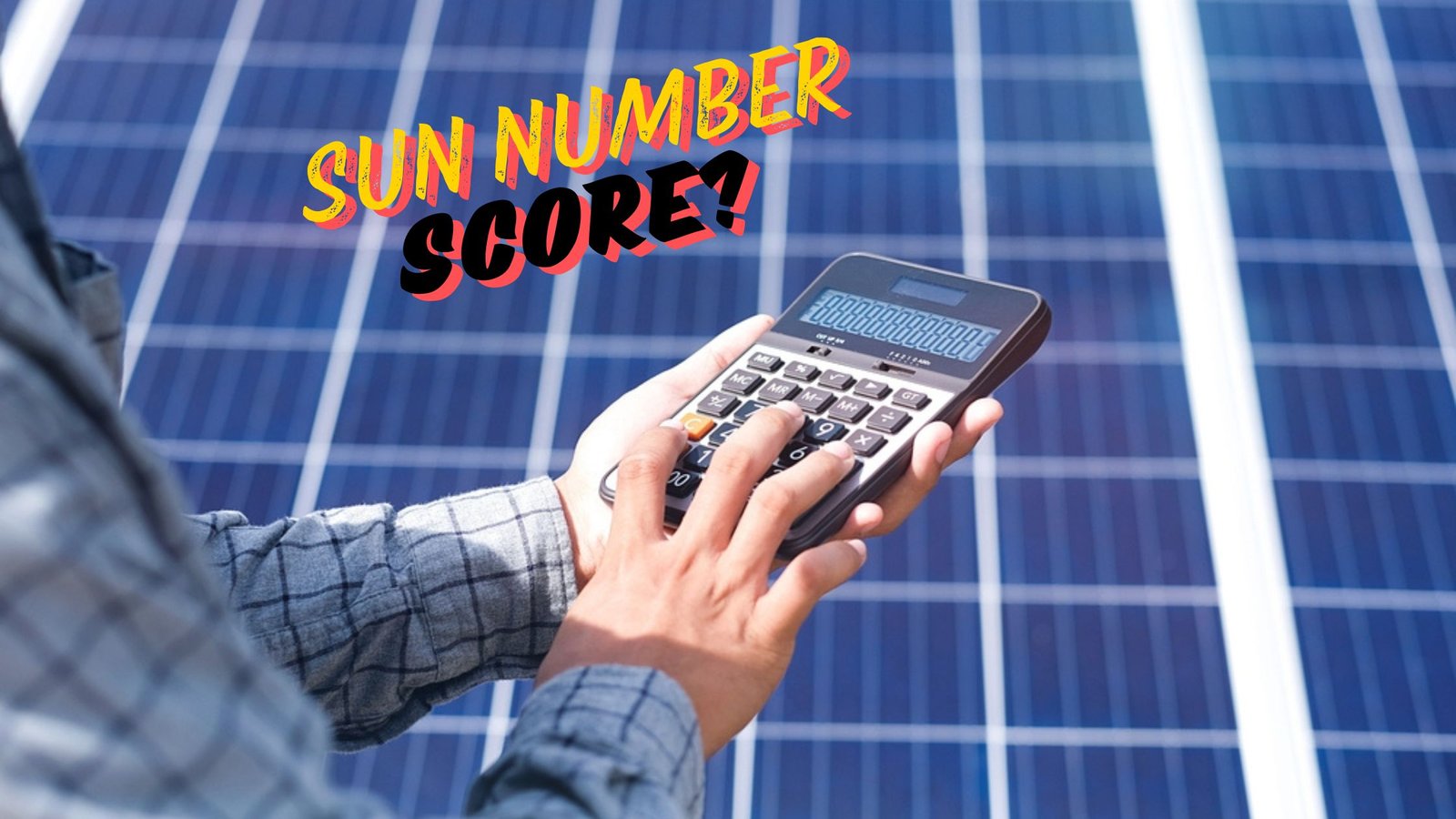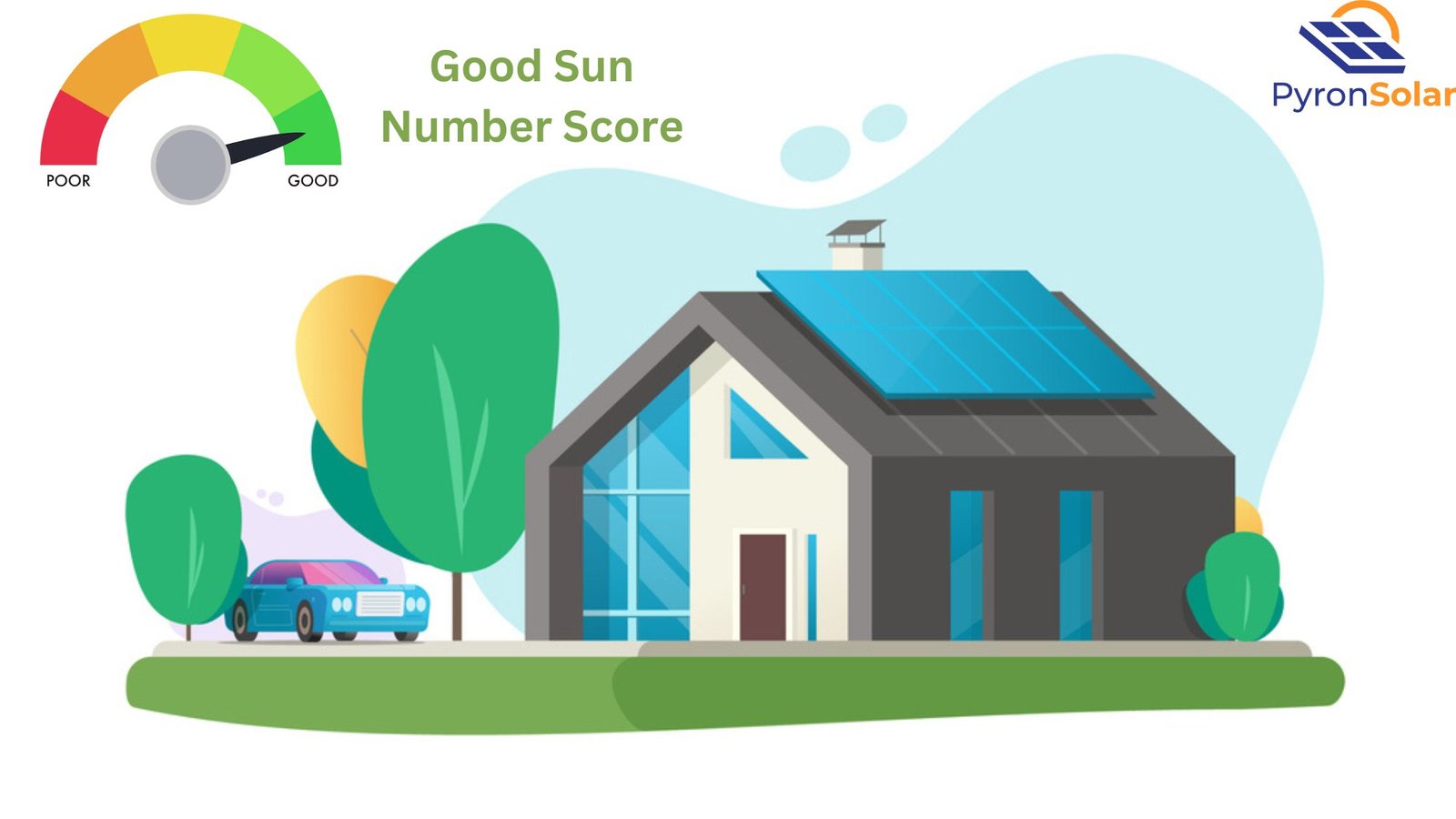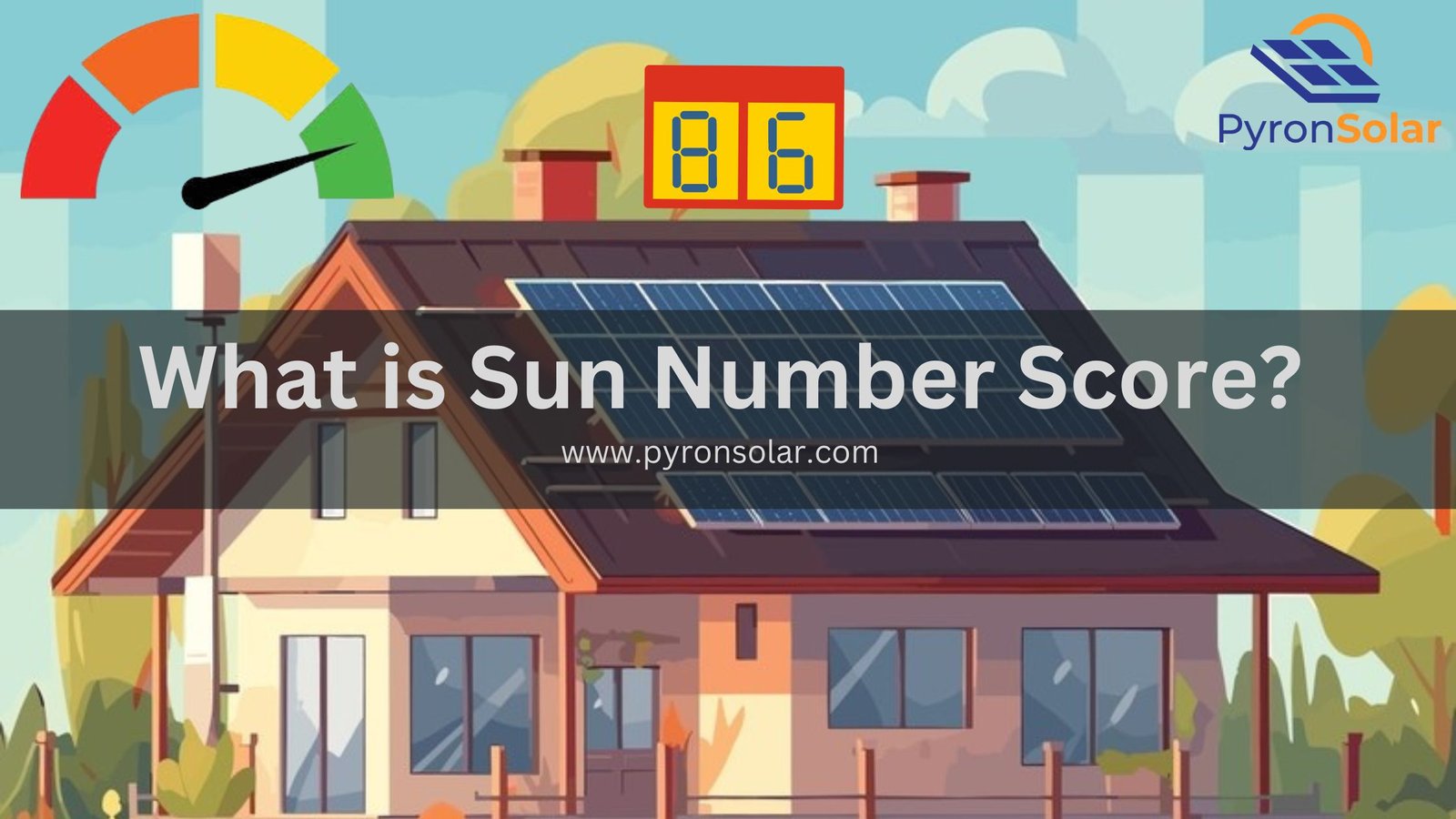A Sun Number, or Sun Score, is a numerical measurement that has greater significance, serving as a useful tool for homeowners to determine their property’s capability of producing solar energy. The Sun Number Score was developed with the SunShot initiative from the U.S. Department of Energy (DOE) Solar Energy Technologies Office (SETO) to improve the understanding of solar energy.
The Range of the Sun Score is from 1 to 100, where 100 indicates the maximum and highest attainable solar power possibility for a residence. To check the Sun Number score, previously there was an option to use Zillow, but unfortunately, it no longer shows the Sun Scores. However, you can access the Sun Number or Sun Score by entering a region’s valid address where the analysis was performed.
Let us discuss how to calculate your sun score and other scores to consider such as — Building Solar, Regional Climate, Electricity Rate, and Solar Cost. Also, about what is a good sun number score and whether can you go solar with a low sun score.
How to calculate your sun score?

To calculate your sun number score, you need to consider 4 important factors, such as:
- Building Solar Score
- Regional Climate Score
- Electricity Rate Score
- Solar Cost Score
If you are a homeowner interested in solar, you can contact the local installers for an accurate assessment. Hence, these professionals will provide you with a certain evaluation of the property by considering site-specific conditions.
Therefore, homeowners should consult their respective local experts who will help them make perfect decisions about going solar and maximize their investment.
The Maximum Sun Number score is 100, calculated by comprising each component’s maximum score. However, a sun number score above 70 can be considered a worthy investment.
Building Solar Score
The Building Solar Score is a numerical indication of a certain building’s ability to qualify for solar panel installation. Also, it considers a few factors such as roof size, placement, weather conditions and shading.
- The maximum building score is 80, which represents the most ideal conditions for solar energy production.
Therefore, the building solar score is important in helping homeowners and business owners understand the possible benefits and energy savings with solar panel installation on their property.
Preferably, the building solar score should not be below the score of 50, and a score above 60 is considered to be perfect solar power potential.
Regional Climate Score
The Regional Climate Score is a qualitative assessment of a location’s suitability for solar energy production, depending on factors such as — average sunlight hours, frequency of bright sunny days, and overall weather conditions.
- The maximum regional climate score is 8, indicating a specific region if it has suitable conditions for solar energy generation.
Hence, the regional climate score is important for the understanding of solar energy generation possibilities in certain regions. Also, it supports decision-making regarding solar energy investments.
A higher climate portion of a sun number score is contributed to mostly the areas with more sunlight throughout the year because they often demand a higher energy output from solar panels.
Electricity Rate Score
The Electricity Rate Score is a numerical assessment which indicates solar energy’s price-effectiveness depending on factors like — local electricity rates and the possible savings through solar energy.
The maximum electricity rate score is 8, pointing out that compared to local electricity rates, solar energy is highly cost-efficient.
As a result, the electricity rate score is important in helping homeowners and businesses determine all the possible advantages of opting for solar energy.
Also, for attaining a higher sun score, high average electric prices play a role in leading till there. Whereas the low electricity prices result in a lower score. Also, the electricity rate of your area is a determining factor for the payback period of your solar panels.
Solar Cost Score
The Solar Cost Score is an estimation of the price-to-value ratio of solar installations in a particular region, considering a few factors including — installation costs, maintenance costs, local incentives, subsidies, and possibilities for energy savings.
- The maximum solar cost score is 4, representing that solar installation costs are nearly compensated by the attainable energy savings.
Therefore, the solar cost score is important to provide us with a clear understanding of the solar installation cost advantages and disadvantages. Also, it is important to help people and business owners make smart and right decisions about solar energy investments.
However, the solar cost score is capable of reaching a maximum of 4 points. Although it makes a 4-point Sun score, still it is taken into account as one of the critical factors.
What Is a Good Sun Number Score?

Ways to estimate how a good sun number score ranges between 0 and 100:
Scaling Data to a 0-100 Range:
You can expand the scale from 0 to 40 to a range of 0 to 100, and multiply that total sum by 2.5. By this, you will obtain the value after you have divided the target maximum of 100 by the unaltered maximum of 40.
.
Also, you can use the normalizing method which involves a dataset from 0 to any number, such as 1000. You can use the formula:
zi = (xi – min(x)) / (max(x) – min(x)) * 1000.
Credit Score Ranges:
A good range for credit scores is from 700 or above, which is usually on a scale between 300 and 850. As a result, a score of 800 or above is considered to be top-notch. However, most consumers tend to get credit scores that range between 600 and 750.
Net Promoter Score (NPS):
The Net Promoter Score is typically represented by a number between -100 and 100. However, this score decreases when there are more negative reviews for a company instead of promoters and positive reviews. Actually, according to experts, a score of 70 or greater than that is considered to be a good sun number score.
Can you go solar with a low sun score?
Yes, you can go solar with a low sun score because it is developed to give a glimpse and estimations of your property’s solar potential but does not consider other details which are important for solar installation.
To find whether your solar is worth it, then you will have to consider a few more factors such as — solar payback period, available solar incentives, etc.
If you have a low sun score, it means your location receives less sunlight as compared to other places. However, it could be because of the local weather, geographical location or other obstructions like big buildings, trees or shady hindrances that are blocking the sunlight.
Overall, a Sun Number score provides a useful indication of a property’s solar potential, it is not the sole determinant of the feasibility of going solar.
Ray is an avid reader and writer with over 25 years of experience serving various domestic and multinational private and public energy companies in the USA.

